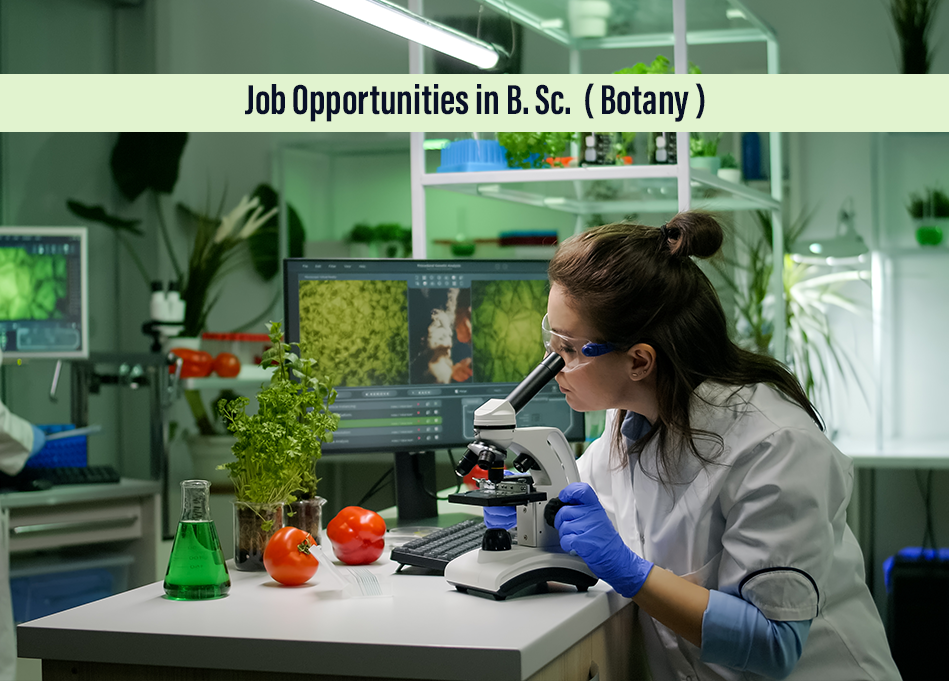A Bachelor of Science (B.Sc.) in Botany is an academic program that provides a comprehensive understanding of plant sciences. Throughout the course, students explore various aspects of plant biology, including taxonomy, physiology, ecology, genetics, and evolution. The curriculum typically combines theoretical knowledge with practical laboratory work, field studies, and research projects. Students learn to identify and classify plants, study their growth and development, and understand their roles within ecosystems. The program equips graduates with a strong foundation in scientific methodologies, critical thinking, and problem-solving skills, essential for careers in research, environmental conservation, agriculture, and related fields. Aspiring botanists engage with topics ranging from plant pathology to horticulture, preparing them for diverse and meaningful roles in the study and stewardship of plant life.
Candidates should have completed their higher secondary education (10+2 level) with 50% marks from a recognized board or educational institution. They should have studied physics, chemistry, and biology as mandatory subjects.
Candidates can choose their career as Plant Pathologist, Ecologist, Nursery Manager, Plant Explorer, etc. Students can also go for higher studies by taking up popular courses like M.Sc. Botany and M.Sc. Environmental Management. A Bachelor of Science in Botany opens up diverse career prospects, allowing graduates to delve into various fields within plant sciences and environmental studies. Botanists may engage in research, studying plant physiology, ecology, and evolution, while ecologists explore the intricate relationships between organisms and their environments, with a focus on plant communities. Environmental consultants with botanical expertise play a vital role in addressing environmental issues, while conservationists work towards protecting natural habitats and biodiversity. Horticulturists utilize their knowledge in the cultivation of plants, whether for agriculture, landscaping, or ornamental gardening. Graduates can also pursue careers as plant breeders, foresters, plant pathologists, research scientists, or educators. With the pharmaceutical industry and biotechnology sectors increasingly relying on plant-related research, opportunities abound for those interested in medicinal properties and advanced technologies. Whether contributing to sustainable forestry practices or exploring genetic engineering, a B.Sc. in Botany lays a foundation for a rewarding and impactful career in the world of plants and ecosystems.
